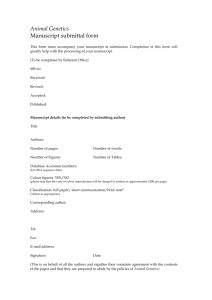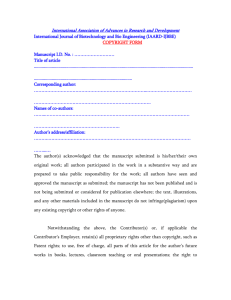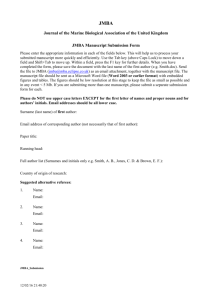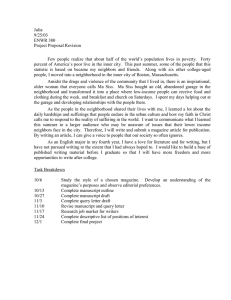Inferring the Demographics of Search Users
advertisement
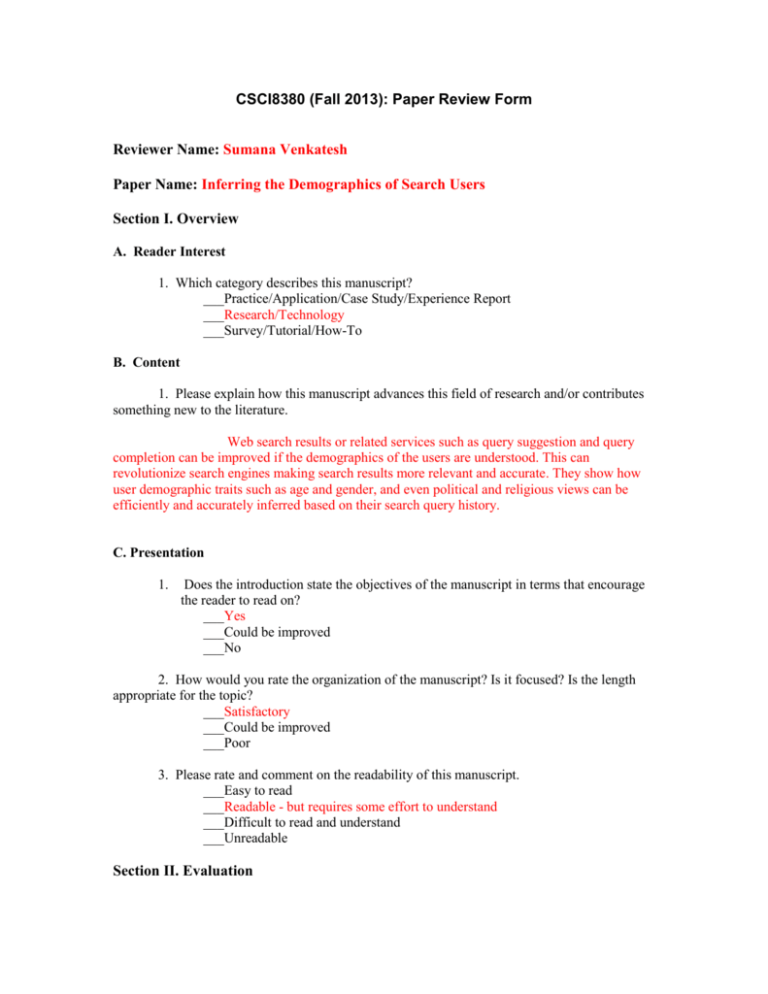
CSCI8380 (Fall 2013): Paper Review Form Reviewer Name: Sumana Venkatesh Paper Name: Inferring the Demographics of Search Users Section I. Overview A. Reader Interest 1. Which category describes this manuscript? ___Practice/Application/Case Study/Experience Report ___Research/Technology ___Survey/Tutorial/How-To B. Content 1. Please explain how this manuscript advances this field of research and/or contributes something new to the literature. Web search results or related services such as query suggestion and query completion can be improved if the demographics of the users are understood. This can revolutionize search engines making search results more relevant and accurate. They show how user demographic traits such as age and gender, and even political and religious views can be efficiently and accurately inferred based on their search query history. C. Presentation 1. Does the introduction state the objectives of the manuscript in terms that encourage the reader to read on? ___Yes ___Could be improved ___No 2. How would you rate the organization of the manuscript? Is it focused? Is the length appropriate for the topic? ___Satisfactory ___Could be improved ___Poor 3. Please rate and comment on the readability of this manuscript. ___Easy to read ___Readable - but requires some effort to understand ___Difficult to read and understand ___Unreadable Section II. Evaluation Please rate the manuscript. Explain your choice. ___Award Quality ___Excellent ___Good ___Fair ___Poor Section III. Detailed Comments (provide your thoughts/criticism about the ideas in the paper; not only summarize the paper but have a critical look here) This paper discusses an innovative method to increase the efficiency of search engines by understanding user demographic traits. The paper addressed the problem of inferring users traits namely age, gender, religion and political view from their search queries. Facebook Likes are matched with the search queries using Open Directory Project categories. The author trained the predictive models on a sample of Facebook users that had agreed to provide their Likes and other profile information for research purposes. Additional Comments: 1. Provide one aspect that you liked the most in this paper. Detailed Explanation and pretty well organized content. Idea of training the predictive model on independent data set. 2. Provide one aspect that you disliked the most in this paper. Not much detail about how evaluation of result is done. Section IV. Discussion Points (provide at least 3 discussion topics/questions related to ideas/techniques described in the paper; these will be used for discussions in the class) 1. Forming Query Trends 2. Why is Bing Search used when the most popular search engine is Google? 3. Gender prediction




